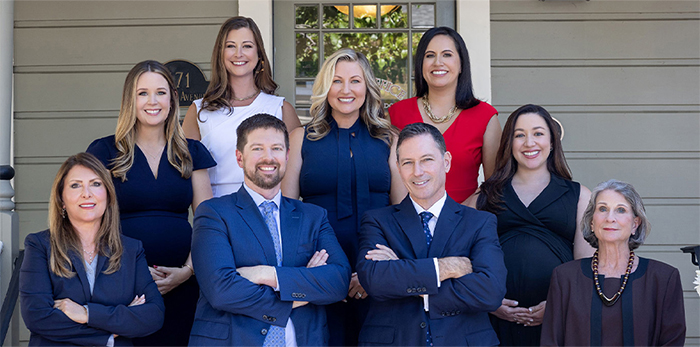Understanding The Divorce Process
Many believe they understand what happens during a divorce. However, few are familiar with the entire process. At Doyle Quane, we want to ensure that you understand what is ahead from beginning to end. We are prepared to guide you through the process and protect your best interests.
File And Serve
To initiate the divorce process in California, you must file a Petition for Dissolution of Marriage and serve your spouse with the proper paperwork.
- Residency requirements: You must have been a resident of the state of California for at least six months immediately preceding the filing of the petition, and the county where you are filing for three months immediately preceding the filing.
- No-fault divorce: California is a no-fault state. That means that neither party has to prove fault to get a divorce. If you want a divorce, you do not need a reason other than “irreconcilable differences” or “incurable insanity”.
- Date of separation: The date of separation is the date that you and your spouse definitively decide to part ways. That could be when one person moves out of the house when you tell the other party you want a divorce. Or, it could be when you serve your spouse with the divorce papers.
The date of separation is an important issue because it represents the end of the marital estate. Money and property acquired after that date will not be characterized as community property. Because of its importance, this date is often a point of contention in divorce proceedings and may not be determined until later in your case.
Discovery
The discovery process is when you gather all evidence relevant to your divorce. You cannot divide property, calculate support, or determine custody and visitation rights if you do not have complete and accurate information.
The evidence sought during the discovery phase typically relates to one of two categories – property or custody.
- Financial information: A major part of the divorce process property division. Before you can divide the property, you need to gather all of the evidence related to your and your spouse’s income, expenses, debts, assets, property, accounts, investments, etc. Our in-house family law forensic accounting department can assist you with this task.
- Best interests of the child: It’s also important to gather evidence that could impact child custody and visitation rights. California promotes custody arrangements that are in the best interest of the child. In most cases, that means allowing the child to spend time with both parents
If you believe that allowing your child to spend time with your spouse is not in the best interest of the child, you need to gather the relevant evidence to support that position. That might include police reports, photographs, medical records, video or audio recordings, etc.
Settlement Discussions
Once you have gathered all the relevant information, it’s time to negotiate. In many cases, there are issues that you and your spouse just cannot agree on. It might be the value of your home. It could be the visitation schedule. You might even disagree over who should get the family dog. Your attorney will assist you in the settlement process and help you craft smart solutions designed to protect your interests and achieve a timely resolution of your case. We have found that the best results are achieved through a well-reasoned approach to settlement discussions, which requires a deep understanding of the facts of your case and a commitment to designing a creative settlement that protects your family and your assets.
If you and your spouse are unable to reach a resolution on your own, the matter will be decided for you by a judge.
Resolution
Your marriage is officially over only when the court enters an executed Judgment of Dissolution. The terms of your divorce should be documented in a Marital Settlement Agreement (MSA). The MSA sets forth the final set of terms of your divorce. If any problems arise after your divorce is finalized, you are obligated to follow the terms of the MSA.
Of course, the court will only grant a Judgment of Dissolution if all issues are resolved. If you and your spouse cannot agree on all of the issues, the open matters will be decided for you by a judge.
Keep in mind that after your divorce is finalized, the court will still have jurisdiction. For example, if you lose your job and cannot pay spousal support, you may file a request to amend the support order based on the significant change in circumstances.
Consult With A Family Law Attorney
This is just a brief overview of the process. To understand what you face in your individual circumstances and how we can help, contact us by email or by calling 925-314-2320.


